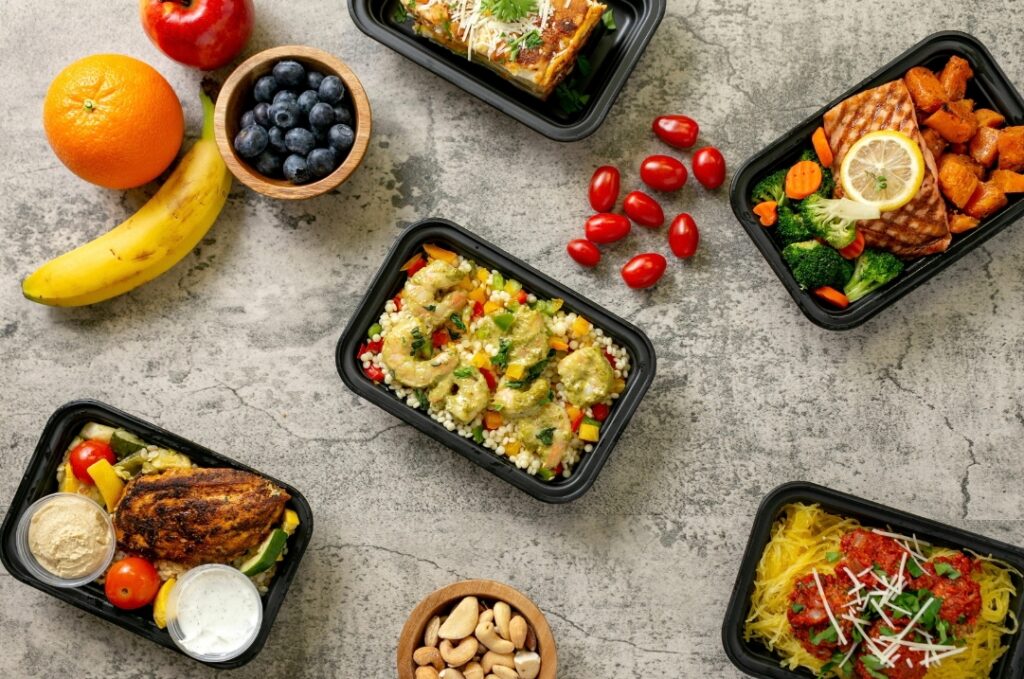Embarking on a 30-day journey to adopt a no-sugar, low-cholesterol meal plan can be a transformative experience for your health and well-being. In today’s world, where processed foods laden with sugar and unhealthy fats abound, taking control of your diet is essential for maintaining optimal health. This article will guide beginners through the process of crafting and implementing a sustainable meal plan that prioritizes wholesome, nutrient-dense foods while minimizing sugar and cholesterol intake.

Understanding No-Sugar, Low-Cholesterol Diets
Before diving into the specifics of a 30-day meal plan, it’s crucial to understand what constitutes a no-sugar, low-cholesterol diet. Such a diet focuses on eliminating added sugars, refined carbohydrates, and foods high in cholesterol, such as fatty meats and dairy products. Instead, it emphasizes whole foods like fruits, vegetables, lean proteins, whole grains, and healthy fats.
Benefits of Following a 30-Day No-Sugar Meal Plan
Adopting a no-sugar, low-cholesterol meal plan offers a myriad of health benefits. From improving heart health and lowering cholesterol levels to stabilizing blood sugar and promoting weight loss, the advantages are numerous. By committing to a structured 30-day plan, individuals can kickstart their journey towards better health and well-being.
Planning Your 30-Day No-Sugar Meal Plan Journey
Setting realistic goals and expectations is crucial when embarking on a 30-day meal plan. Rather than aiming for perfection, focus on making gradual, sustainable changes to your diet and lifestyle. Whether your goal is to lose weight, improve your cholesterol levels, or boost your energy levels, having a clear plan in place will set you up for success.
Creating a Balanced Meal Plan
Crafting a balanced meal plan involves selecting a variety of nutrient-rich foods that provide essential vitamins, minerals, and antioxidants. Aim to include a combination of lean proteins, whole grains, fruits, vegetables, and healthy fats in each meal. By prioritizing whole foods and minimizing processed ingredients, you can ensure that your meals are both nutritious and satisfying.

Sample Meal Plan: Here’s a sample 30-day meal plan to get you started:
Week 1:
- Breakfast: Oatmeal with fresh berries and nuts
- Lunch: Grilled chicken salad with mixed greens and olive oil dressing
- Dinner: Baked salmon with steamed broccoli and quinoa
Week 2:
- Breakfast: Greek yogurt with sliced peaches and chia seeds
- Lunch: Quinoa and black bean stuffed bell peppers
- Dinner: Turkey meatballs with zucchini noodles and marinara sauce
Week 3:
- Breakfast: Smoothie made with spinach, banana, almond milk, and protein powder
- Lunch: Lentil soup with whole grain bread
- Dinner: Grilled tofu with stir-fried vegetables and brown rice
Week 4:
- Breakfast: Avocado toast on whole grain bread
- Lunch: Chickpea and vegetable curry with brown rice
- Dinner: Baked cod with roasted Brussels sprouts and sweet potatoes
Snack Ideas:
- Fresh fruit
- Raw vegetables with hummus
- Nuts and seeds
- Greek yogurt with cinnamon
- Rice cakes with almond butter
Grocery Shopping Guide for 30-Day No-Sugar Meal Plan
When grocery shopping for your 30-day meal plan, prioritize fresh, whole foods over packaged and processed items. Opt for organic produce when possible and read labels carefully to avoid hidden sugars and unhealthy fats. Stock up on pantry staples like beans, legumes, nuts, seeds, and whole grains to ensure you always have nutritious ingredients on hand.
Cooking and Preparation Tips for 30-Day No-Sugar Meal Plan
Experiment with different cooking techniques to enhance the flavor and texture of your meals without relying on added sugars or unhealthy fats. Try grilling, roasting, steaming, or sautéing your ingredients using herbs, spices, and citrus juices for added flavor. Meal prepping can also save time and ensure that healthy options are readily available throughout the week.
Staying Motivated
Maintaining motivation throughout the 30 days can be challenging, but focusing on the positive changes in your health and well-being can help keep you on track. Surround yourself with supportive friends and family members who can encourage you along the way. Celebrate your progress and small victories, and don’t be too hard on yourself if you slip up occasionally.
Tracking Progress
Keep track of your progress throughout the 30 days by monitoring changes in your energy levels, mood, and physical well-being. Consider keeping a food journal to track your meals, snacks, and any cravings or triggers you may encounter. Celebrate milestones along the way and adjust your plan as needed to ensure continued success.
Dealing with Cravings
Cravings for sugar and high-cholesterol foods are common, especially during the initial stages of adopting a new meal plan. Instead of giving in to temptation, experiment with healthy alternatives like fresh fruit, Greek yogurt, or homemade trail mix. Finding ways to satisfy your cravings without derailing your progress is key to long-term success.
Exercise and Lifestyle Recommendations
In addition to following a no-sugar, low-cholesterol meal plan, incorporating regular exercise and stress management techniques into your routine can further enhance your health and well-being. Aim for at least 30 minutes of moderate-intensity exercise most days of the week, such as brisk walking, cycling, or swimming. Practice relaxation techniques like yoga, meditation, or deep breathing to reduce stress and promote overall wellness.
Social Support and Accountability
Enlist the support of friends, family members, or online communities to help keep you accountable and motivated throughout your 30-day journey. Share your goals and progress with others, and seek encouragement when needed. Having a support system in place can make all the difference in staying committed to your health and wellness goals.
Potential Challenges and Solutions
While following a 30-day no-sugar, low-cholesterol meal plan offers numerous benefits, it may also present challenges along the way. From navigating social gatherings and dining out to managing cravings and setbacks, there are bound to be obstacles to overcome. By anticipating potential challenges and developing strategies to overcome them, you can stay on course and achieve success.
Tips for Success on Your 30-Day No-Sugar Meal Plan journey
As you embark on your 30-day no-sugar, low-cholesterol meal plan, keep these tips in mind to maximize your success:
- Stay Hydrated: Drinking plenty of water throughout the day can help curb cravings and keep you feeling full and energized.
- Focus on Whole Foods: Choose whole, unprocessed foods whenever possible to ensure you’re getting the most nutrients and avoiding hidden sugars and unhealthy fats.
- Read Labels: Become familiar with reading food labels to identify added sugars and high-cholesterol ingredients lurking in packaged foods.
- Meal Prep: Spend some time each week prepping ingredients and meals in advance to make healthy eating more convenient and accessible.
- Listen to Your Body: Pay attention to how different foods make you feel and adjust your meal plan accordingly. Everyone’s dietary needs and preferences are unique, so it’s essential to listen to your body’s cues.
- Seek Support: Don’t hesitate to reach out to friends, family, or online communities for support and encouragement. Having a strong support system can make all the difference in staying motivated and accountable.
- Practice Mindful Eating: Take the time to savor and enjoy your meals, paying attention to hunger and fullness cues. Mindful eating can help prevent overeating and promote a healthier relationship with food.
- Stay Positive: Focus on the positive changes you’re making to improve your health and well-being, rather than dwelling on any setbacks or challenges along the way. Celebrate your progress and keep moving forward with confidence and determination.
By incorporating these tips into your daily routine, you can make the most of your 30-day journey towards better health and well-being.
Delicious and Nutritious: 11 Heart-Healthy Breakfast Recipes Without Oil
30-Day No-Sugar, Low-Cholesterol Meal Plan for Beginners, Created by a Dietitian
Conclusion
Embarking on a 30-day no-sugar, low-cholesterol meal plan is a powerful step towards improving your health and well-being. By prioritizing whole, nutrient-dense foods and minimizing sugar and cholesterol intake, you can experience a wide range of benefits, from improved heart health to increased energy levels. With careful planning, commitment, and support, you can successfully navigate the challenges and emerge healthier and happier than ever before.
FAQs
- Can I still enjoy desserts on a no-sugar meal plan?
- While traditional desserts high in sugar are off-limits, there are plenty of delicious alternatives to satisfy your sweet tooth, such as fruit-based desserts, dark chocolate, or homemade treats sweetened with natural sweeteners like honey or maple syrup.
- Will I feel deprived on a low-cholesterol meal plan?
- Not at all! A low-cholesterol meal plan can be incredibly varied and delicious, incorporating a wide range of fruits, vegetables, whole grains, and lean proteins. With a little creativity and experimentation, you’ll discover a world of flavorful, heart-healthy meals to enjoy.
- How can I stay on track when dining out or attending social events?
- When dining out or attending social events, plan ahead by reviewing the menu beforehand and choosing options that align with your meal plan. Don’t be afraid to ask for modifications or substitutions to make healthier choices. Additionally, consider bringing a dish to share that fits your dietary preferences.
- Will I lose weight on a 30-day no-sugar, low-cholesterol meal plan?
- While weight loss results may vary depending on individual factors such as metabolism and activity level, many people experience weight loss as a result of adopting a no-sugar, low-cholesterol meal plan. By focusing on whole, nutrient-dense foods and minimizing processed ingredients, you can support your body’s natural ability to maintain a healthy weight.
- Can I continue the meal plan beyond the initial 30 days?
- Absolutely! Many people find that the benefits of a no-sugar, low-cholesterol meal plan extend far beyond the initial 30 days. By establishing healthy habits and enjoying the positive changes in your health and well-being, you may choose to continue following the meal plan indefinitely.
